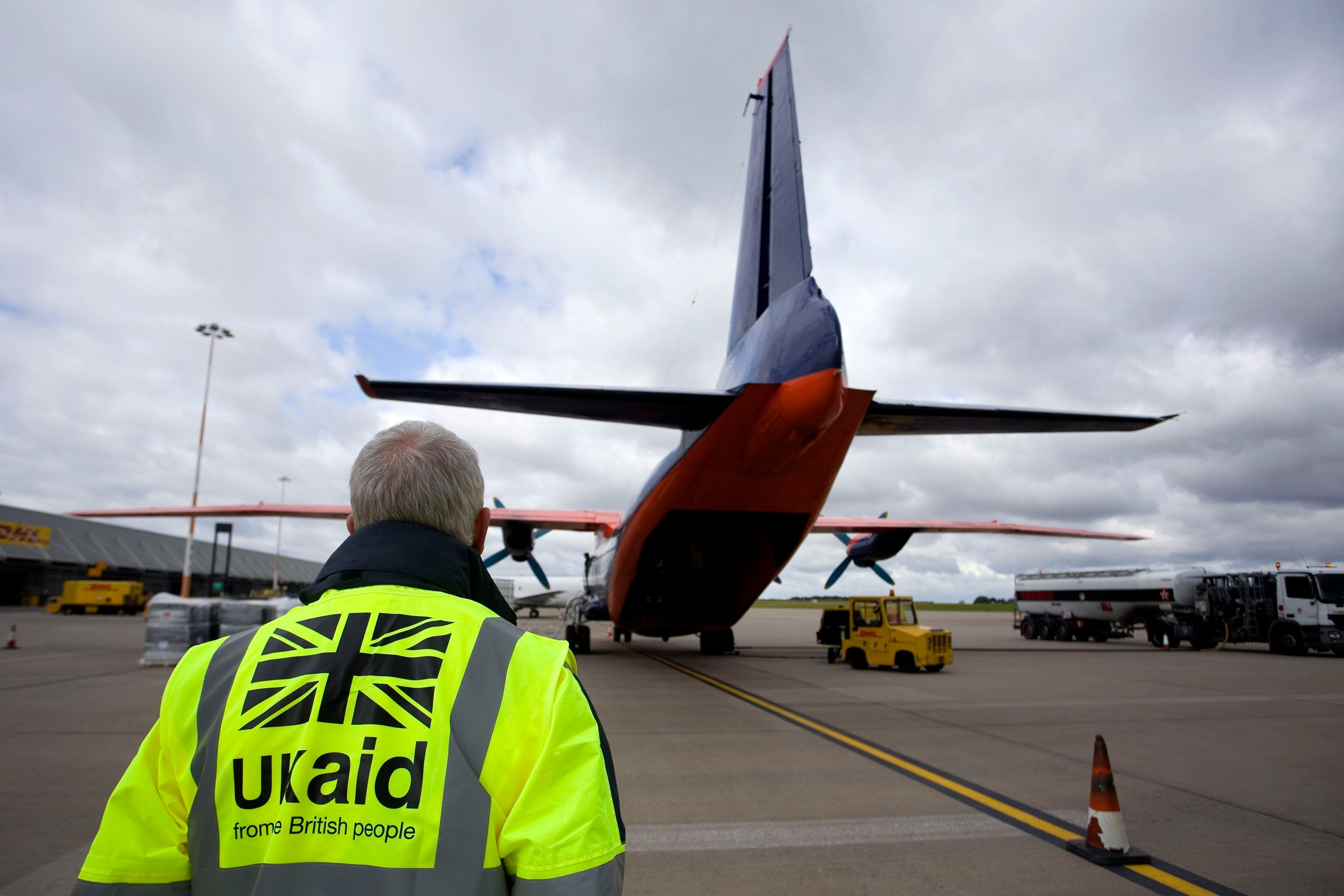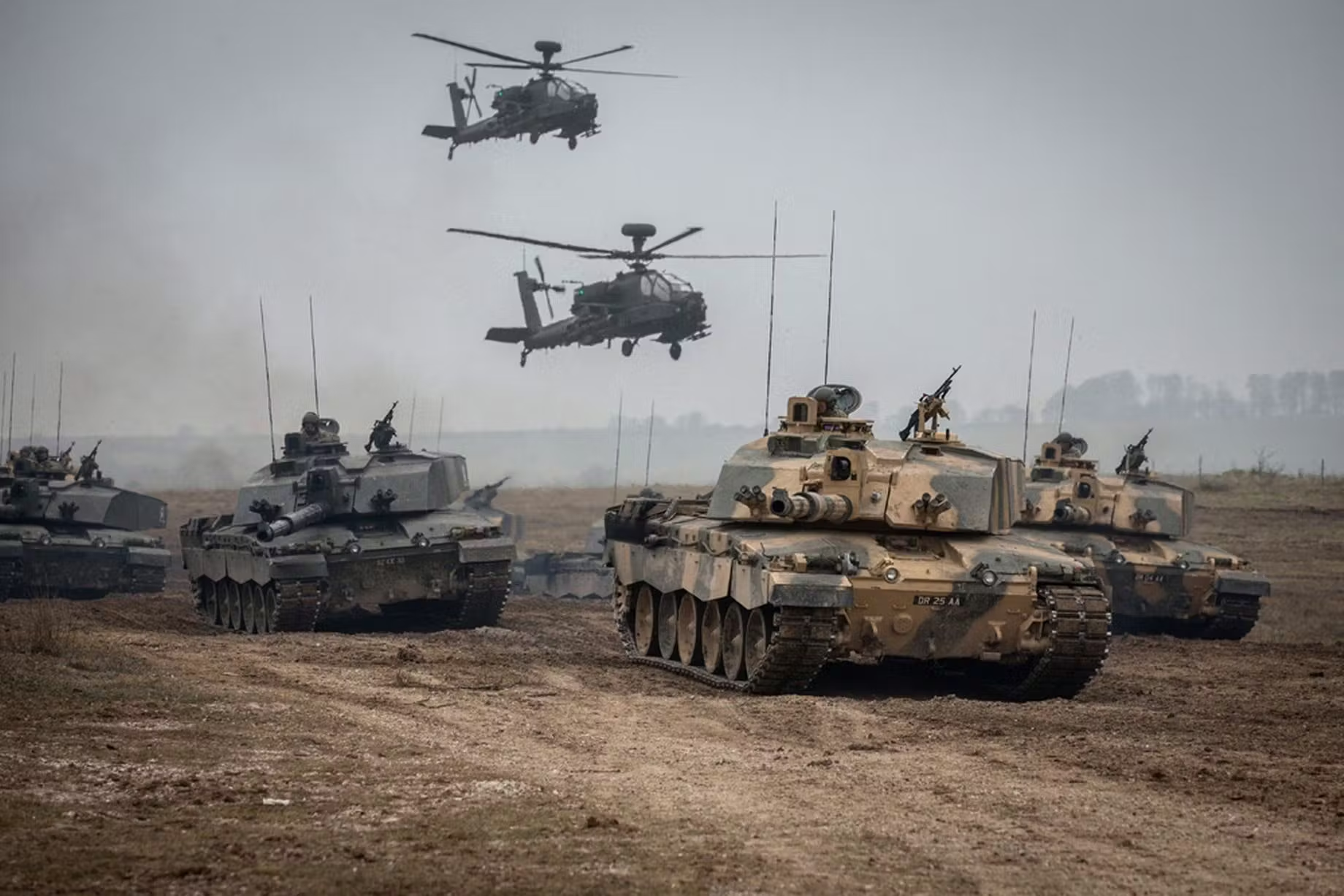Amid Criticism and Concerns: How the UK Seeks to Boost Its Defence Capabilities

“65% of Britons are in favour of increasing defence spending at the expense of overseas aid.”
Several British newspapers have highlighted that investment in air defenses, warships and drones tops the Ministry of Defense’s priorities, after the Labour government confirmed an increase in its military budget, considering it the largest sustained increase since the end of the Cold War.
The Guardian headlined its front page with a direct quote from Prime Minister Keir Starmer, who warned that the UK must be prepared to fight for peace in Europe.
As for the Daily Mail, it focused on the source of funding for this increase, indicating that the government will rely on reducing the foreign aid budget to finance defense spending.
Labour MPs and humanitarian charities have called on Starmer to find the cash for defense by raising taxes or relaxing the government’s fiscal rules to allow for more borrowing.
A YouGov poll recently found that 65% of Britons are in favour of increasing defence spending on the expense of overseas aid, while just 20% are opposed.
Defence Spending
Amid growing fears that the U.S. may reduce its military support for the European continent, the UK is trying to consolidate its strategic position and enhance its military readiness in anticipation of any US changes in the coming period.
In a remarkable move ahead of his visit to the White House, Prime Minister Keir Starmer announced on February 25 an increase in the defence budget to 2.5% of GDP.
This increase reflects a British response to a demand that US President Donald Trump has repeatedly repeated, namely the need for European countries to increase their contributions to the NATO budget.
Starmer confirmed that this increase, which will raise defence spending from 2.3% to 2.6% by 2027, means an additional £13.4 billion annually.
He pointed out that the long-term goal is to reach 3% of GDP by 2029.
He stressed that this move comes to confront tyrants, referring to Russian President Vladimir Putin, adding that the decision required difficult and painful choices in light of increasing economic pressures.
Despite the increase in military spending, the UK is still far from the percentage demanded by Trump for NATO countries, which is set at 5% of GDP.
It is noteworthy that the last time the UK spent 3% of its GDP on defense was in 1993 and 1994.
Since World War II, successive UK governments have reduced military spending and focused instead on increasing allocations for health, social care and education.

Overseas Aid
The UK government's increase in defence spending comes at the expense of the £13.4 billion international development aid budget, which will be cut from 0.5 to 0.3% of GDP over the same period.
Starmer said: “I'm not happy to announce this but the security of the British people is this government's number one priority.”
He stressed that the UK would continue its humanitarian role in Ukraine, Sudan and Gaza, in addition to its efforts to protect the environment and address the climate crisis, but he indicated that the current priority is British national security.
Based on the latest forecasts for GNI, reducing aid spending to 0.3% in 2027 would reduce the budget to £9.2 billion.
In 2023, the total aid spend was £15.34 billion, almost a third of which was spent on supporting and housing refugees and asylum seekers in the UK.
The last time Britain's aid contribution dropped below 0.3% was a quarter of a century ago, in 1999.
According to the Guardian, the move has angered some Labour MPs and supporters of British development policies, especially since the ruling party had previously promised to raise the aid budget to 0.7% of GDP.
Labour ministers have also warned that the decision could weaken the UK’s soft power and increase the likelihood of illegal immigration.
Anneliese Dodds has resigned as international development minister over Keir Starmer's policy to fund defence by cutting aid, saying the move represents a serious retreat from the UK’s long-standing humanitarian role in supporting the most vulnerable.
Former MP Barry Gardiner warned that this would lead to more people being slain by famine, drought, disaster and war.
Labour MP Sarah Champion, chair of the International Development Committee, stressed that cutting aid funding would have dire consequences for global stability.
She stressed the importance of investing money in development rather than dealing with the consequences of conflict.
Simon McDonald, a former British diplomat, and David Miliband, chair of the International Rescue Committee and former Labour foreign secretary, have warned that cutting the foreign aid budget could damage Britain’s reputation as a global humanitarian and development leader.
“This is a short-sighted and appalling move,” said Romilly Greenhill, CEO of London-based Bond, a network for humanitarian organizations.
“To appease Trump, he will cut aid to its lowest level in a generation. It is a day of shame for Britain,” said Nick Dearden, director of campaign group Global Justice Now.
Action for Humanity (AFH) described the decision as reckless, warning that its dangers extend beyond the immediate impact, but also extend to long-term repercussions.
It also called on the UK government to reconsider this decision before it is too late, stressing that humanitarian aid is not a luxury that can be dispensed with, but a moral and legal obligation that must be fulfilled.

Military Pullback
While some in British society have celebrated the move to boost defence spending, which could boost Labour’s political standing, the controversial financial details have raised questions.
Former Army chiefs have criticized Keir Starmer for cutting foreign aid in order to boost defence spending.
While Starmer has claimed the increase will add £13.4 billion a year to the defence budget, Defence Secretary John Healey himself has cast doubt on the figure.
In an interview with the BBC, he admitted that the true figure after taking inflation into account would be just over £6 billion.
In addition, doubts remain about whether the increase will address the significant decline in British military power across all branches over the years, a crisis that successive governments have proved unable or unwilling to reverse.
Senior UK defence officials and politicians have long warned that the British military is in a dire state.
Many have expressed concern that the current increase is still far short of what is needed to maintain peace in Ukraine, let alone fight a major ground war with Russia.
Speaking to the BBC a day after Starmer’s announcement, Gen. David Julian Richards, the former head of the British armed forces, expressed his delight at the new investment but pointedly noted that the British military is suffering from a significant decline in its military capabilities compared to what it was in the 1990s.
The comments highlight the deep crisis facing the British military establishment, at a time of rising global geopolitical risks, raising serious questions about the UK’s defence capability and its role in maintaining European security.
In another context, analyses have revealed that the British army has become increasingly dependent on the U.S. over recent decades to manage and implement any operations abroad.
Analysts believe that only about 12,000 soldiers could be deployed to Ukraine as part of a peacekeeping force - and they could only support this force for a year, after the assumption had always been that British forces would be deployed with their American counterparts.
In an analysis by The Times earlier last year, experts predicted that by 2030, based on current recruitment trends, the force could be down to just 52,000 troops, a 40% drop since 2010.

In response, the Ministry of Defense said its efforts to improve recruitment were focused on cutting red tape.
A spokesman for the ministry said the government was committed to reforming the recruitment system, with the forces given their biggest pay rise in decades and 100 outdated recruitment policies scrapped.
He noted that the House of Commons had also passed legislation to create a new Armed Forces Commissioner to improve conditions of service life.
In turn, Cabinet minister Pat McFadden said the government was not examining bringing in mandatory recruitment into the armed forces.
Sources
- UK's Starmer boosts defence spending on eve of Washington trip
- Keir Starmer says Europe ‘at crossroads in history’ and must support Ukraine
- Keir Starmer faces growing pressure from senior Labour MPs
- Charities appalled by UK cut to aid budget to fund defence spending
- Former Army chiefs criticise Starmer’s aid cut to boost defence
- Can the British military restore itself in time for a European security crisis?
- Britons support cutting overseas aid to increase defence spending











